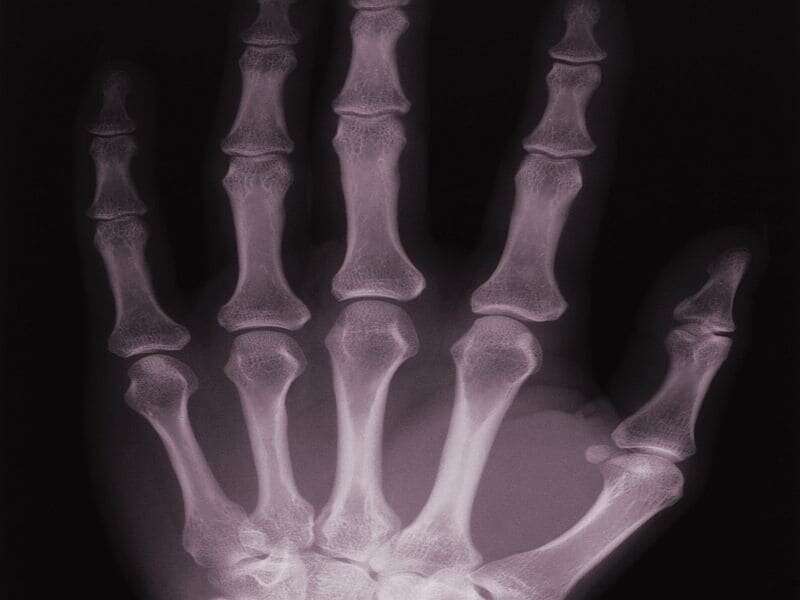Serum IL-35 levels tied to bone loss with rheumatoid arthritis

Serum interleukin (IL)-35 levels are associated with bone loss and may represent a novel therapeutic target for postmenopausal women with rheumatoid arthritis (RA), according to a study published online Aug. 26 in Mediators of Inflammation.
Yuxuan Li, from the First Affiliated Hospital of China Medical University in Shenyang, and colleagues explored the correlations between IL-35 levels and bone loss in postmenopausal women, including 76 with RA and 53 healthy controls. Additionally, dual-energy X-ray absorptiometry was used to measure bone mineral density (BMD) at lumbar spine 1 to 4 and at total hip.
The researchers found that serum IL-35 levels were increased in RA patients compared with healthy controls. Additionally, serum IL-35 level positively correlated with BMD and 25-hydroxyvitamin D3 level and negatively correlated with β-isomerised carboxy-terminal cross-linking telopeptide of type I collagen in postmenopausal women with RA. Women with higher alkaline phosphatase (ALP) levels had higher serum IL-35 levels than those in the normal ALP group.
"IL-35, an important anti-inflammatory cytokine, may participate in the pathogenesis of bone loss in postmenopausal women with RA," the authors write.
More information: Abstract/Full Text
Copyright © 2019 HealthDay. All rights reserved.

















